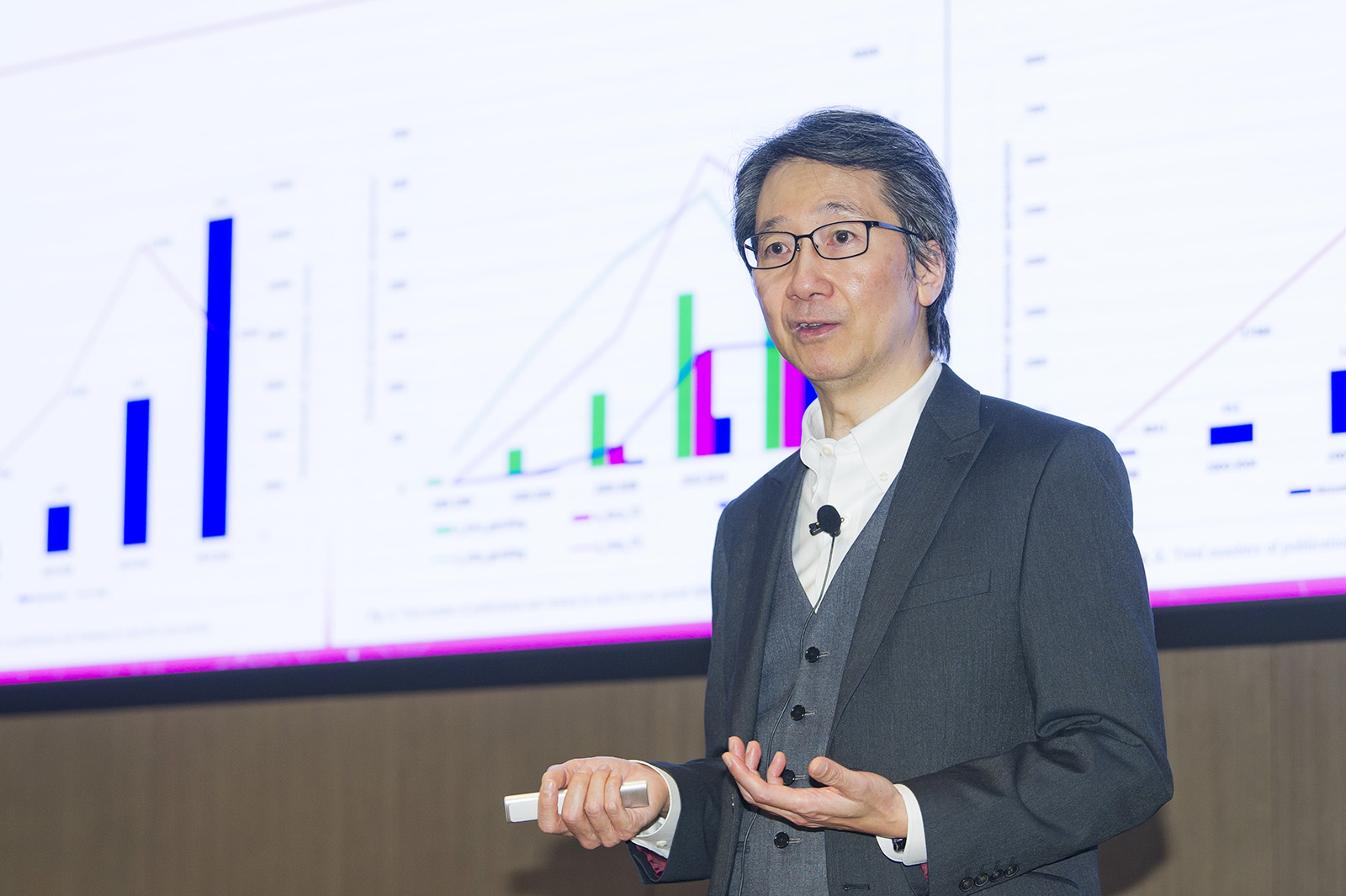Addictive behaviour and digital technologies

The latest installment of the President’s Lecture Series: Excellence in Academia concerned us all, in both senses of the word. The topic relates to our daily lives and it causes many of us a great deal of anxiety.
New types of behavioural addiction related to a possible over-reliance on the use of digital technologies are now regarded as mental health disorders, according to Professor Matthew Lee Kwok-on, Chair Professor of Information Systems and Electronic Commerce and Vice-President (Development & External Relations).
This development in our understanding of how usage of digital technology might affect our mental well-being prompted the very apt title of Professor Lee’s online talk, held on 27 January at City University of Hong Kong (CityU): “Why are we so addicted to cyber worlds? From Tamagotchi to metaverse”.
In his talk, Professor Lee detailed how scientists across multiple fields are currently debating how to classify, and treat, what is now perceived as compulsive behavioural phenomena related to social networks, online shopping, and smartphone addiction, among others.
One of his main points was that while there is a great deal of research into behavioural addiction, convergence was largely missing for now, and so a specific focus on behavioural addictions as a distinct “overarching construct”, covering conceptualisation, theory and measurement, was required.
Few of us could have predicted, Professor Lee argued, the extent to which technology would come to dominate our lives when Tamagotchi, the world’s first virtual pet living in a parallel metaverse, hit the toy markets in late 1996. Jump forward nearly 20 years, and several tech revolutions, and our behaviours have changed radically.
The turning point, according to Professor Lee, occurred in 2013 when the Diagnostic and Statistical Manual for Mental Disorders, an authoritative guide used by healthcare professionals in much of the world for the diagnosis of mental disorders, recognised and included addictive gambling as a mental disorder in the manual for the first time and urged more research to be conducted on other types of potentially addictive behaviours, especially those related to technology and the Internet.
Then in 2015, Professor Lee continued, the WHO published a report on the public health implications of excessive use of the internet, computers, smartphones and similar electronic devices. This eventually led to the inclusion of gaming disorder (both online and off variants) to be included in the 11th edition of WTO’s International Classification of Diseases as a clinically recognisable and clinically significant mental disorder in 2018.
In the same year, Professor Marc Potenza, a US psychiatrist at Yale University School of Medicine, writing in Nature called for more research into the “biological, psychological and social processes underlying addictive behaviours” in relation to online gaming.
Professor Lee’s talk served as an overview of much of the most relevant and up-to-date studies in the field and offered a comprehensive exploration of what is meant by addiction, and specifically the differences between substance and behavioral addiction.
While the two might seem to a lack a connection, since one involves an addiction to a narcotic such as cocaine or heroin, while the other is seen as the repeated use of, say, online games, the underlying neuro-biological mechanisms, stimuli, cognitive/affective responses, reward expectancies, and executive control functions, among others, might exhibit similarities, Professor Lee explained.
An interesting issue is that addiction to technologies could be worse than compulsive behaviour around, for example, alcohol. We have laws that regulate buying alcohol, but such regulations don’t effectively regulate young people’s access to online gaming.
He also noted that defining, or recognising, addictive behaviour is highly complex. For example, someone who constantly checks into their social media accounts might not be exhibiting addictive behaviour necessarily.
“You cannot be addicted to something unless you want to stop and you can’t,” Professor Lee said.
Professor Lee’s research into the field has focused on areas such as investigating the compulsive use of mobile SNS from a stimulus-response-reinforcement perspective and the psychology of smartphone usage using flow theory, i.e. the idea that we can be totally absorbed, and happily, absorbed in an activity.
The conclusions from his talk at CityU suggested that now was the time to gather related research together to build an overarching understanding of additive behaviour and digital technologies.
“We don’t need any more theories for now,” he said, emphasising that this relatively new field was generating a huge number of theoretical studies rather than empirical cross-validation.
“Robust convergent research will help us to develop future revisions on behavioural addiction,” he said.